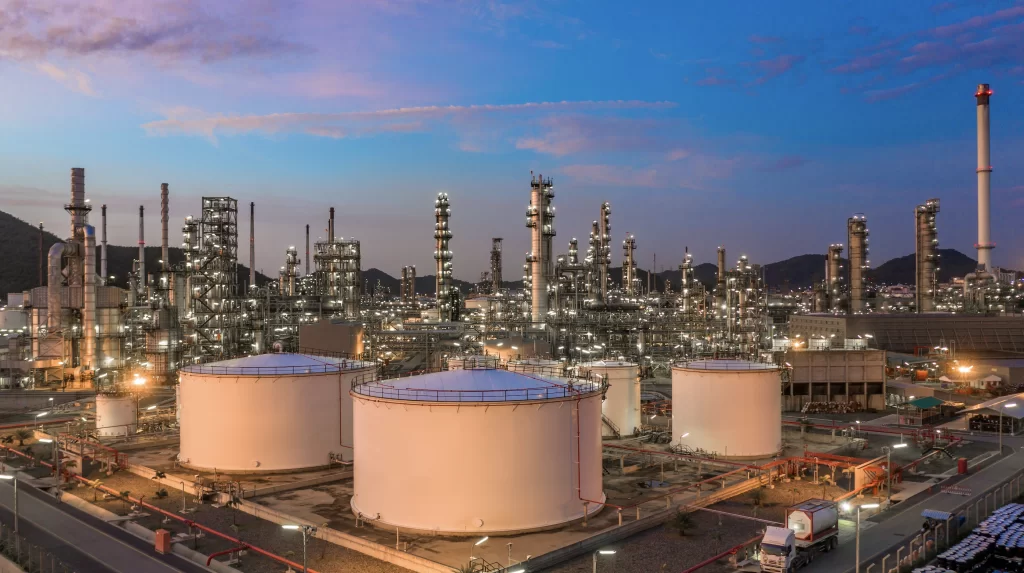In the rapidly evolving world of oil and gas, ensuring robust security guard services is essential to protect valuable assets, sensitive information, and critical infrastructure. Oil & Gas Security is not just about preventing theft or sabotage; it encompasses a broad range of strategies to safeguard operations against various threats. This blog explores essential security guard services that can help secure oil and gas operations effectively.
Alpine Protection Services Serving Oil and Gas Security Sector
Alpine Protection Services stands out as a leader in delivering customized security services tailored to meet the unique needs of each client. Specializing in a wide range of security services, Alpine Protection combines cutting-edge technology with highly trained personnel to ensure inclusive protection for Oil and Gas Pipelines and other operations. Their approach involves a thorough assessment of each facility’s security needs, enabling them to design and implement strategies that effectively address specific risks and vulnerabilities. With a commitment to excellence and customer satisfaction, Alpine Protection Services provides peace of mind by safeguarding assets, enhancing security, and ensuring a safe environment for clients.
Understanding Importance of Oil & Gas Security Guard Services
Oil and gas operations involve substantial investments in infrastructure and technology. These assets are crucial to national energy security and economic stability. The industry faces numerous risks, from physical threats like vandalism and theft to targeting operational technology. Ensuring Oil & Gas Security is vital to prevent financial loss, operational disruptions, and environmental damage. Effective Security requires a multi-layered approach. This involves implementing physical security measures i.e. on-site security guards, investing in cybersecurity, and preparing for emergency situations. By understanding and addressing these key areas, companies can enhance their overall security posture and protect their operations from a wide range of potential threats.
Security Guard Companies Providing Security for Alberta Oil and Gas Sector
In Alberta, security guard companies play a pivotal role in safeguarding the oil and gas sector, a critical industry for the province’s economy. Security guard companies in Alberta offer tailored security solutions that address the unique challenges and high-stakes environment of oil and gas operations. Security guards are strategically deployed to monitor and protect extensive facilities, including drilling sites, refineries, and storage tanks, ensuring that sensitive areas are secure from unauthorized access, theft, and sabotage. Their presence acts as a deterrent to potential threats and enhances the overall safety of the site. Moreover, security guard companies often implement advanced surveillance systems, including CCTV and motion detectors, to provide real-time monitoring and rapid response to any suspicious activities. Additionally, security guards are trained to handle emergencies, conduct regular inspections, and enforce safety regulations, which is essential for maintaining compliance with industry standards and protecting valuable assets. By providing a comprehensive approach that combines vigilant patrolling, technological integration, and expert risk management, security guard companies are instrumental in ensuring the safety and operational integrity of Alberta’s oil and gas sector.
Understanding Challenges of Security Guard Services for Oil and Gas Sector
Oil and gas facilities face unique security challenges due to their critical role in the energy sector. These operations are often located in remote or high-risk areas, making them vulnerable to various threats, including theft, sabotage, and vandalism. Additionally, the complexity of the infrastructure and the significant financial investments involved add layers of complexity to the security landscape. Addressing these challenges requires an inclusive understanding of the specific risks associated with oil and gas operations.
Physical Security Strategies
Implementing effective physical security strategies is crucial for protecting oil and gas facilities. This includes erecting high-security fences, installing surveillance cameras, and employing security personnel/guards/officers. Perimeter security is the first line of defense, and advanced technologies such as motion detectors and automated alarms enhance its effectiveness. Regular security audits and maintenance of these systems ensure that they remain operational and effective against evolving threats.
Cybersecurity Measures for Oil & Gas
Cybersecurity is an essential aspect of Oil & Gas Security, as the sector increasingly relies on digital technologies. Protecting operational technology (OT) and data from cyber threats involves deploying firewalls, intrusion detection systems, and regular software updates. Implementing strict access controls and encrypting sensitive information are vital practices. Additionally, continuous monitoring and threat intelligence can help detect and mitigate potential cyber threats before they impact operations.
Emergency Response Plans and Protocols
Developing robust emergency response plans is critical for managing incidents that could disrupt oil and gas operations. These plans should detail procedures for evacuations, communication, and coordination with emergency services. Regular drills and training exercises ensure that personnel are prepared to respond effectively to emergencies. Additionally, having a well-documented incident management protocol helps in managing and mitigating the impact of unforeseen events.
Integrating Advanced Surveillance Technology
Advanced surveillance technology plays a key role in enhancing Oil & Gas Security. High-definition cameras with capabilities such as night vision and motion tracking can provide inclusive coverage of facility perimeters. Integrating these systems with AI and machine learning can improve threat detection and response times. Remote monitoring capabilities allow security teams to manage surveillance systems from any location, ensuring constant oversight and rapid reaction to incidents.
Employee Training and Security Awareness
Training employees on security best practices is a fundamental component of maintaining this Security. Regular training sessions should cover topics such as recognizing potential threats, safe handling of sensitive information, and proper use of security systems. Creating a culture of security awareness helps ensure that all employees understand their role in safeguarding the facility. Ongoing education and refresher courses keep security knowledge current and relevant.
Collaboration with Local Law Enforcement
Building strong relationships with local law enforcement and emergency services is vital for effective security management. Regular coordination and information sharing with these agencies can enhance the response to security incidents. Joint training exercises and briefings ensure that local authorities are familiar with the facility’s security protocols and can provide timely assistance if needed. This collaborative approach strengthens overall security preparedness and response capabilities.
Future Trends in Oil & Gas Security
Staying ahead of emerging security trends is essential for maintaining effective Security. Advancements in technology, such as blockchain for secure data transactions and advanced analytics for threat detection, are shaping the future of security in the sector. Adapting to these trends and integrating new technologies can enhance the ability to manage and mitigate risks. Continuous evaluation of security practices and investment in innovative services will ensure that facilities remain protected against evolving threats.
Conclusion
Ensuring Oil & Gas Security is a multifaceted task that requires an inclusive approach to protecting assets, infrastructure, and sensitive information. By implementing robust physical security measures such as on-site security guards for oil and gas pipelines and other oil and gas operations, investing in cyber security, and preparing for emergencies, companies can effectively safeguard their operations against a wide range of threats. Embracing advanced technologies and maintaining a proactive security strategy are essential for staying ahead in the ever-evolving landscape of oil and gas security.



